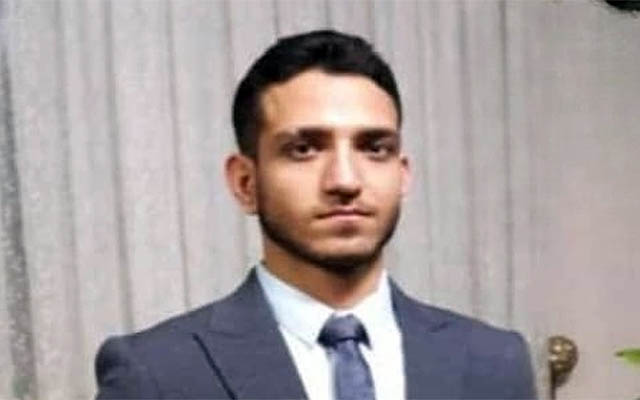U.S.-based Iranian Jews are fundraising to secure last-minute reprieve for young Jewish man scheduled for execution by hanging.
By World Israel News Staff
The Iranian regime has postponed the execution of a young Jewish man convicted of murder who had been scheduled for execution on Monday.
The execution has been set for next month, but there is still time for a last minute reprieve from the victim’s family which would spare the man’s life.
20-year-old Arvin Natanel Ghahremani was involved in a 2022 brawl in the city of Kermanshah, which left a Muslim Iranian dead.
According to Iranian court documents viewed by the New York Post, the man who was killed was actually the aggressor in the incident.
Ghahermani was working out a gym when he was confronted by a group of seven men, one whom owed him money, court transcripts indicated.
One of the mob, identified as Amir Shokri, stabbed Ghahermani with a knife. Shokri was killed after Ghahermani wrested the knife away and fought back in self-defense.
Ghahermani was convicted by a local court of being an “accomplice to the intentional murder of a Muslim” and for “intentionally inflicting nonfatal injuries,” according to the Post report.
He was immediately sentenced to death by hanging, which is not appealable under Iranian law.
Iran is governed by Sharia law, which provides harsher punishments for non-Muslims who kill Muslims than in incidents when both parties are Muslim.
Iranian law does have a provision which would permit Shokri’s family to spare Ghahermani from execution, in exchange for financial compensation.
So far, the slain man’s family has refused to accept payment, but that may be for strategic reasons.
According to rumors circulating in Jewish social media groups, the Shokri family are aware that Ghahermani’s loved ones are in contact with wealthy U.S.-based Iranian Jews and thus wish to drag out the negotiation process.
Due to a quirk in Iranian law, the slaim man’s family could potentially wait until moments before Ghahermani’s scheduled execution to “forgive” him and accept compensation.
By waiting as long as possible to agree to spare the young man’s life, the Shokris could potentially extract a larger amount of money from the Jewish community.





